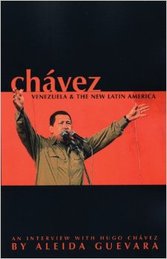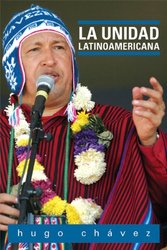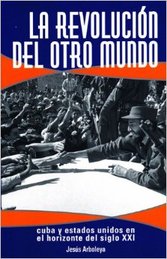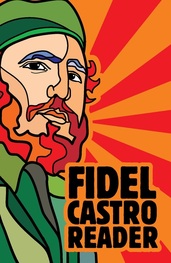Immanuel Wallerstein maintains that Third World national liberation movements were able to obtain political independence, but they were not able to improve social and economic conditions. In general, this is true. I maintain, however, that we must distinguish between moderate and revolutionary national liberation governments. The former have cooperated, to some extent through coercion, with the neocolonial world-system, and therefore they have limited possibilities for the improvement of social and economic conditions. The latter, on the other hand, are seeking to construct an alternative more just and democratic world-system.
But are the concrete gains of the revolutionary Third World national liberation governments sufficient to justify the claim that they are constructing an alternative world-system? In addressing this question, some general observations can be made concerning six nations that claim to be developing socialist projects: China, Vietnam, Cuba, Venezuela, Bolivia, and Ecuador. First, these six nations have in different degrees developed structures of popular democracy. The first three, which came to power through armed struggle, have developed popular power, in which the people form local popular councils that elect delegates to serve in higher levels of authority, which in turn elect delegates to a still higher level. These structures are an alternative to representative democracy, in which the people elect, not a delegate from among the members of a council that regularly meets, but a representative, chosen from competing candidates whom the electors have never met, making the choice on the basis of television news sound bites and political advertising. Representative democracy is experiencing a crisis of legitimation in the world-system, but in Cuba, popular power has high levels of participation and legitimacy (see “The Cuban revolutionary project and its development in historical and global context”). In the second three countries, in which revolutionary governments came to power utilizing structures of representative democracy, there are continuing efforts to develop structures of popular participation and forms of integrating popular councils into the process of representative democracy. In addition, all three have held constitutional assemblies with broad popular participation and have created new constitutions, which have increased the level of political legitimacy, in spite of on-going efforts by the United States to generate conflict and political instability. We will be examining further the alternative political structures that have been developed in the socialist nations in future posts.
The six nations with self-proclaimed socialist projects have had significant gains, in varying levels in different historical periods, in the protection of the social and economic rights of the people. These gains include reduction or elimination of illiteracy as well as significant increases in access to education, health care, art, and sport. We also will be looking at these gains in future posts.
On the international plane, the six nations have insisted on their sovereignty. Indeed, Wallerstein has described China, Vietnam, and Cuba as fiercely independent. They take seriously the principle of the sovereign rights of all nations, a principle affirmed by the United Nations and other international agencies but disregarded by the global powers, which continually intervene in various forms in the affairs of Third World nations.
As we have seen, Venezuela, Cuba, Bolivia and Ecuador are the leading nations of ALBA, which seeks to develop mutually beneficial commercial, financial, social and cultural relations among the participating nations, thus developing an alternative practice in international relations, based on the principle of solidarity among all peoples. The member nations of ALBA are developing commercial and cultural accords with China and Vietnam (see “The rise of ALBA” 3/11/2014).
And we have seen that the nations of ALBA and their approach to international relations enjoy support from all of the nations of Latin America and the Caribbean. The progressive and leftist governments of the region, such as Argentina and Brazil, have significant relations with the nations of ALBA, and to some extent, they are participating in the construction of an alternative world-system. Moreover, the recent Declaration of Havana by the Community of Latin American and Caribbean States (CELAC) shows that all of the nations of the region affirm fundamental principles of ALBA, even the few nations that continue to be strong allies of the United States and its neoliberal project (see “The Declaration of Havana 2014” 3/14/2014).
The alternative principles formulated by the leading nations of the alternative socialist civilizational project have been affirmed not only by the nations of Latin America and the Caribbean, but also by the nations of the Third World. This can be seen in the 2006 Declaration of the Non-Aligned Movement, an international movement organization whose membership consists of 118 governments of the Third World, which together represent 75% of the nations of the earth and 80% of humanity. The Declaration asserted that the collective desire of the movement is to establish a more just and equal world order, but various obstacles exist, including “the permanent lack of cooperation and the coercive and unilateral measures imposed by some developed countries.” The Declaration rejected the neoliberal project, maintaining that the liberalization of commerce perpetuates and increases inequality among and within nations, and it increases the marginalization of countries in development. The Declaration also praised Cuba for its dignified example of independence, and it expressed support for Cuba, Venezuela, and Bolivia in their conflicts with the global powers.
The development in practice of an alternative ethic for international relations is emerging at a time in which the world-system has entered a terminal structural crisis. The economic, financial, ecological, political, and social crisis of the world-system has been caused fundamentally by the fact that it has reached the geographical limits of the earth, taking away its historic method of expanding by conquering new lands and peoples. The global elite has responded to the crisis with the imposition of the neoliberal project, which functions to accelerate and deepen the global crisis. The neoliberal project demonstrates that the global elite is morally and intellectually unprepared to respond to the systemic crisis in a constructive form, and it has been an important factor in the emergence of the alternative project from below that proclaims socialism for the twenty-first century.
Wallerstein writes of the loss of faith in the capacity of the state to improve the social and economic conditions of the people. To be sure, there is a tendency for the people to speak of the need to decentralize, to overcome the historic problem of all administrative structures, be they political or economic, or be they under private or public ownership, to be vertically directed from above. Thus, in the emerging socialist world there is a tendency to speak of “socialism from below” in opposition to “socialism from above.” But this is understood as a movement to improve socialism, to bring it to a more advanced stage by seeking to overcome an historic problem of all administrative structures. It is a movement for the improvement of socialism that continues to affirm the historic socialist project, that continues to affirm the importance of the state in the development of the economy and in the providing of human services, that continues to defend the historic nationalizations by socialist governments as necessary and desirable, that sees local action as necessary but also as part of a national plan and project, and that above all continues to have faith in the capacity of an organized and politically conscious people to take control of states and convert them into actors in the construction of a just and democratic world-system.
We should take seriously the discourses of the charismatic leaders of our day: Hugo Chávez, Evo Morales, and Rafael Correa. They maintain that a more just and democratic world-system is possible through a process in which a politically conscious and unified people take control of the state in order to transform it into a mechanism that defends the rights, interests, and needs of the various popular sectors. They have affirmed the legitimacy of the historic charismatic leaders in Latin America, from Bolívar to Fidel, as well as the historic revolutionary charismatic leaders of Africa and Asia. They have obtained the support of the majority of the people, in spite of the hostility and divisive maneuvers of the global elite and the national bourgeoisies.
The just and democratic world-system emerging from below is a real possibility for the future. And so is a neofascist global military dictatorship implied by the new forms of ideological manipulation, interventionism, and militarism being developed by the global powers. Humanity confronts a choice between these two real possibilities as the world-system experiences bifurcation.
Key words: Third World, revolution, colonialism, neocolonialism, imperialism, democracy, national liberation, sovereignty, self-determination, socialism, Marxism, Leninism, Cuba, Latin America, world-system, world-economy, development, underdevelopment, colonial, neocolonial, blog Third World perspective, Wallerstein, world-systems analysis, ALBA, CELAC, Non-Aligned Movement







 RSS Feed
RSS Feed





